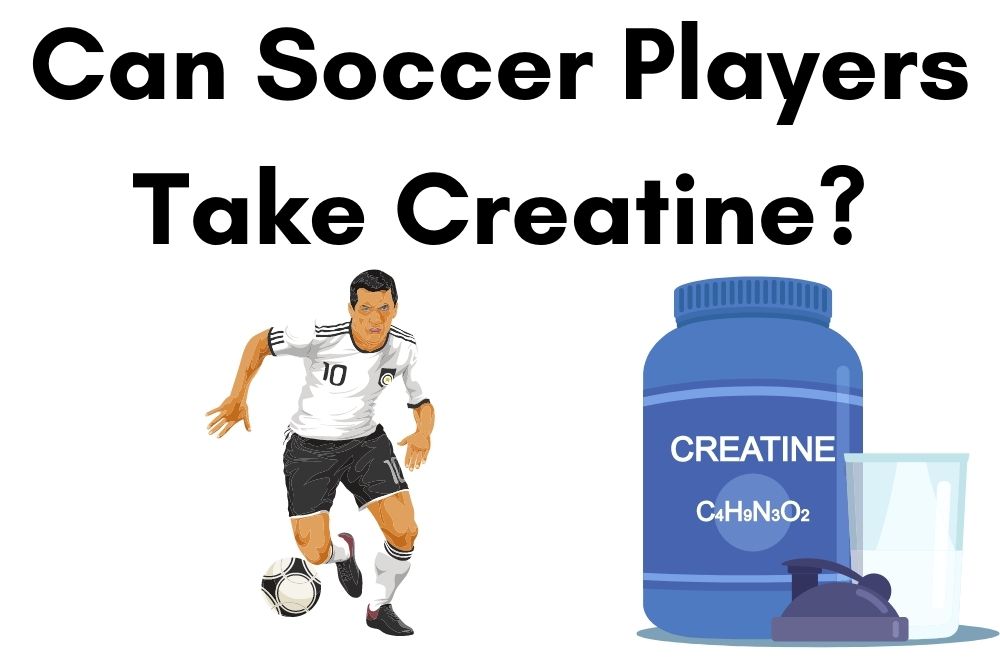Soccer is a highly demanding sport, and it takes a significant toll on the mind and body of professional athletes of the game. And one of the major difficulties facing soccer players is bulking up muscles.
Between the daily rigors of training, practice, and live games, it is usually challenging to allow the body time for muscle development. Generally, soccer as a sport puts the body of players through stress, which negatively impacts the body in many ways.
One of which includes the disruption of our hormonal balance due to stress. Cortisol is the hormone directly connected with stress in the human body. This implies that the more stress the body goes through, the more cortisol it produces.
Furthermore, high-stress levels put the body through frequent exercise and leave the body in a state of catabolism. This implies the breaking down of nutrients by the body from within itself.
As a result, much body fat is consumed, and the athletes are left looking gangly and lightweight (as you would find a long-distance runner). This is why creatine is essential, as it helps negate the above factors.
Regardless of it being essential, can soccer players take creatine? How much creatine should a soccer player take? What are the side effects?
Well, let’s find out!
Quick Navigation
Can Soccer Players Take Creatine?
The simple answer to this is Yes, soccer players can take creatine. This is because it is a supplement that benefits soccer players in many ways. These benefits are essential to a player’s performance at all game levels.
In addition, it improves the health and durability of players, ensuring that they don’t run a personal loss for choosing to practice the sport. Usually, creatine ensures that players do not burn out or break down as the body struggles to cope with the game’s pace.
Hence, taking it puts players in a better position that keeps them secure and free to enjoy their loved game. However, its most profound effects are in four main aspects:
- Increasing endurance.
- Enhancing strength.
- Encouraging lean muscle growth.
- Improving cognitive function.
Pros
1. Increasing endurance
When creatine is added to a player’s diet, it helps in allowing the body to build up more muscle. More muscle implies more strength, and more strength will create a higher level of endurance.
The body can only store enough ATP for 8-10 seconds, after which new ATP has to be produced. Creatine helps in the production of ATP, meaning you don’t get fatigued easily.
More ATP in the bloodstream means the muscles have more energy to work with, hence a creatine user will last for a longer period.
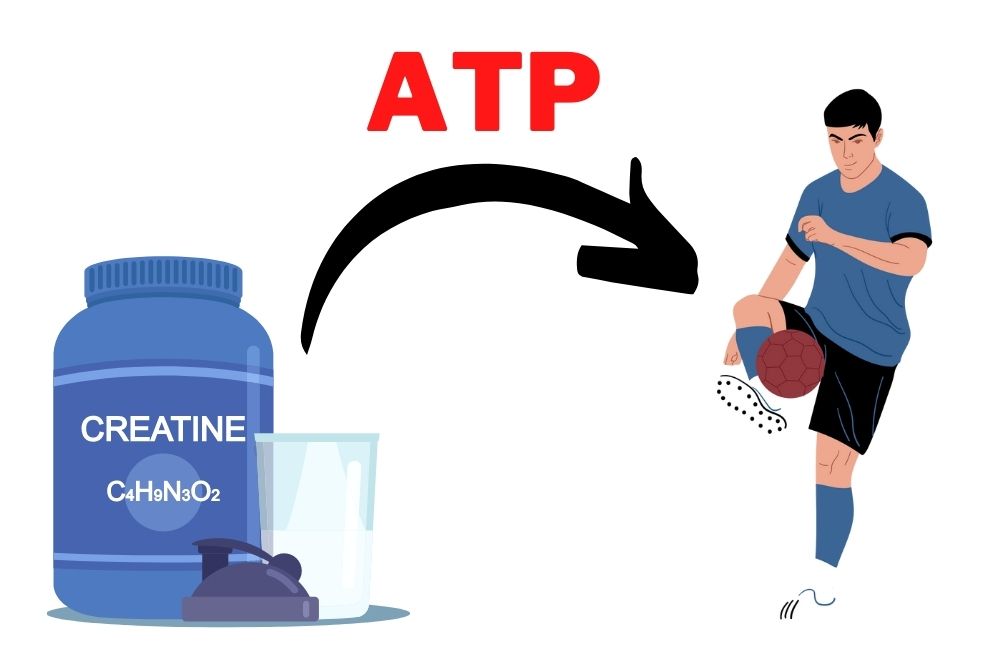
Most soccer coaches find players that burn out easily unreliable, preferring to select the ones that will last the entire stretch of the game. This makes sense since there is a limited number of substitutions per game.
This is why endurance is a key attribute essential to thriving in the game. In a game, having to push yourself harder to go on amazing runs may be the key ingredient to your team winning a match.
The most popular type of soccer is association football, and in this brand of soccer, the game usually lasts for 90 minutes. That’s quite a long time to be running back and forth.
In some cases, it extends beyond that and there could be an additional 30 minutes of extra time.
Throughout this period, a player is expected to maintain energy levels without dropping performance. Creatine allows for this, keeping you going for as long as required.
2. Strength
Physical strength depends significantly on muscle mass. The amount of force a player can exert depends on how much muscle has been amassed over time alongside a few other factors. Creatine helps in muscle growth which will eventually increase the strength of a player.
In certain positions, the key to thriving is not with skills alone but also strength to outmuscle the opposition. Players with a greater strength tend to jump higher and withstand the pressure when a ball is crossed into the 18-yard box.
As a result, players jostle for the ball, and the stronger ones usually emerge victorious during these battles. Creatine usage over a while ensures that enough strength is accrued to withstand the challenges players face during a game.
A good example that may require more strength than others is the unique and central defensive positions. Players of this sort occupy the business area of the pitch, where goals are scored.
As a result, to prevent or to achieve a goal, you may not only have to be the most skillful but also the strongest.
Good examples of players who use their strength efficiently are Swedish veteran Zlatan Ibrahimovic and Belgian Romelu Lukaku. Both are famous for dominating and overpowering their opponent.
3. Encouraging lean muscle growth
There is a process known as hypertrophy. It refers to instances when there are micro-tears on muscular tissues due to excessive stress on our muscles. These tears can’t be left as they are, hence, the body works to repair them by filling the gaps created.
The body does this by improving muscle mass and increasing the size of the muscles. With the additional help provided by creatine, this process is done faster and more efficiently.
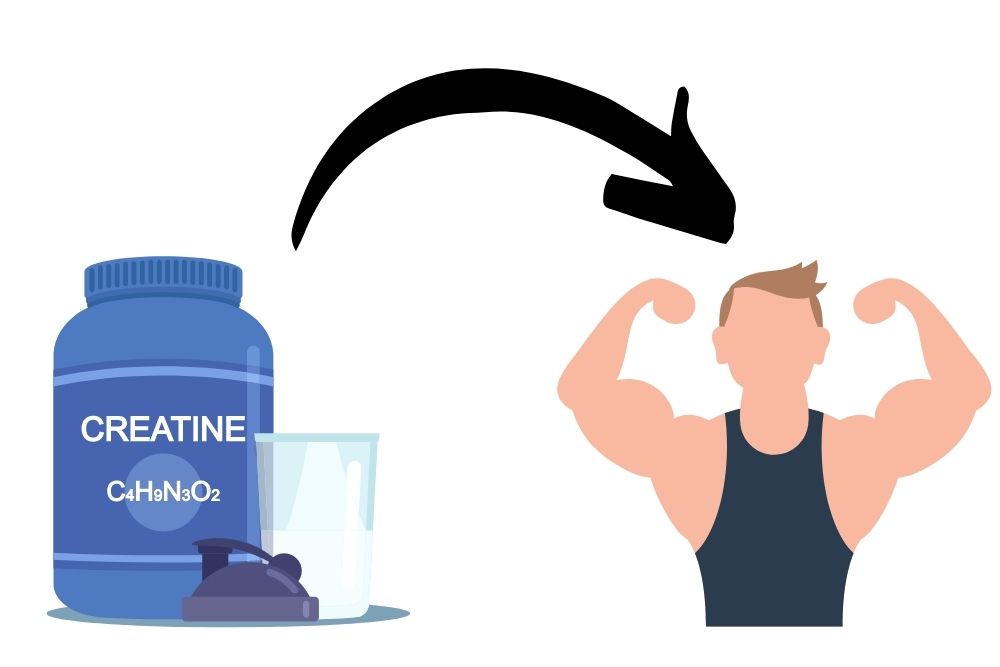
Due to the numerous range of movements on a soccer pitch which includes squatting, jumping, and sprinting, players get these micro-tears in their muscles. Over time, you will notice a marked change as these muscles are replenished, and the players bulk up.
Asides from soccer matches and training sessions, players also have a unique workout regimen. This means they would be spending long hours in the gym with the sole aim of increasing muscle mass.
Creatine aids this process by increasing the speed of the bulk-up process.
4. Improving cognitive function
Aside from the obvious benefits of increasing muscle mass, strength, and endurance, creatine also helps in improving brain function. The demands of soccer go beyond just physical prowess to a level of mental alertness.
A player must be able to anticipate several movements quickly across the pitch to decide how best the ball can be moved to the advantage of the team. In the heat of the moment, a lack of coordination can result in a player making a harsh decision and giving the ball away cheaply to the team’s detriment.
Making quick decisions is a crucial part of the game and creatine helps achieve this by improving cognitive function. Since the brain uses up energy in the same way muscles do, having a constant energy supply helps quicken reaction time.
In the same way, players also get to learn faster on the field of play in crucial game moments. Asides from these three core advantages of taking creatine, there are other benefits involved. These benefits are more evident in matches and the day-to-day lives of players.
5. Tackling sleep deprivation
Being an athlete in any capacity is no small feat. Training daily and delivering on game days accumulate to pile up a lot of stress on players. These daily routines, in some instances, lead to sleep deprivation as players have less time to sleep and recover.
Creatine supplements come in handy when dealing with this issue. Using small doses can help the player maintain skill levels while preserving cognitive abilities.
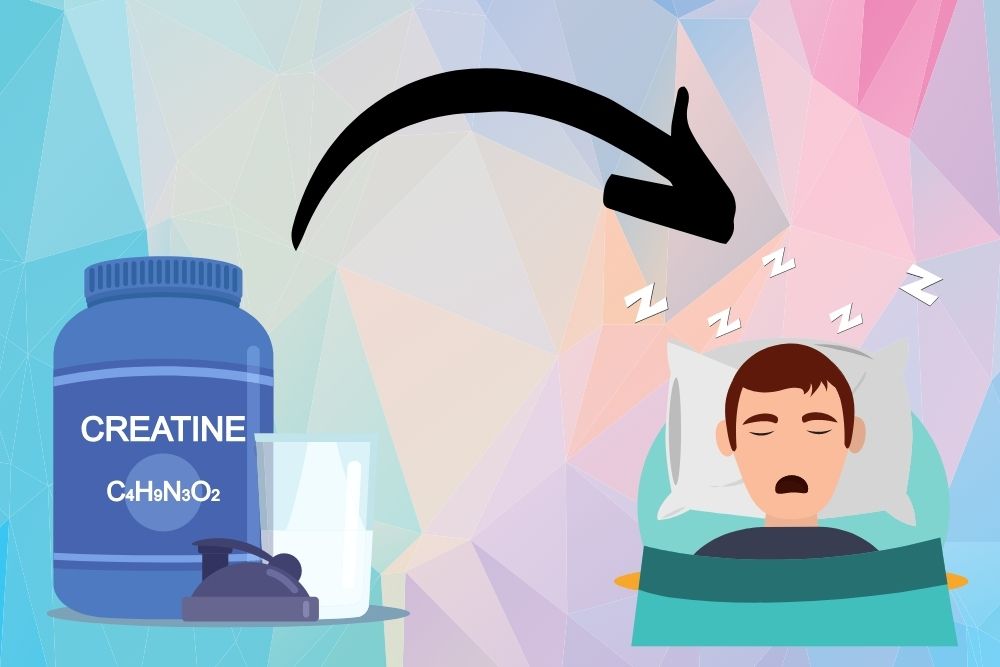
This implies that a shorter time could be spent training to master movements and drills. As a result, more time can be spent on rest and recovery.
6. Increased sprinting ability
Soccer involves a lot of sprinting. Creatine helps in enhancing this ability as it quickens the production of the energy that fuels this endeavor.
During sprinting, a lot of energy is produced and immediately used up. In some instances, when two players are chasing the ball, one would burn out before the other because there isn’t enough energy to keep up with the demand of the muscles involved in the sprinting motion.
Creatine helps in remedying this by boosting the energy production process, ensuring the players can run harder and longer without burning out.
7. Injury prevention and quicker recovery
Injuries are part of the sport, and they may seem inevitable. However, injuries come from fatigue or pushing the body beyond its naturally accustomed limits in some instances.
This means that if a player is stronger and built to last longer, there will be a lesser chance of getting injured.
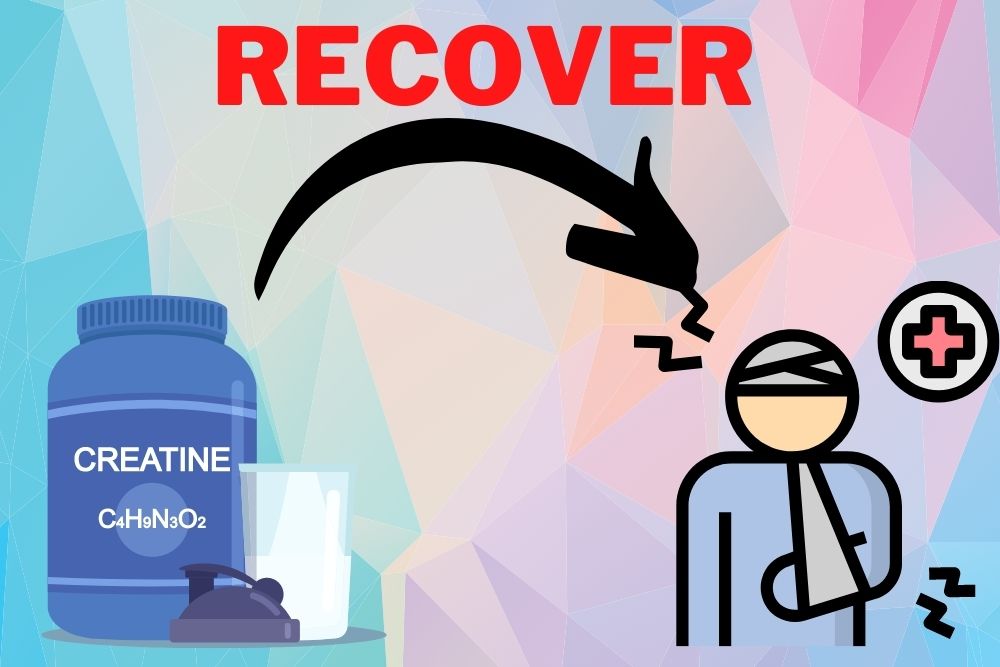
This is where creatine comes in as it boosts energy production and creates a new normal for the body system. As a result, the player’s body adapts to the stress and strains it goes through for longer periods without breaking down.
Cons
Like most supplements, creatine comes with instructions on how to be used. However, you will find several instances where it is being misused.
Creatine misuse can have several detrimental effects including;
1. Digestive issues
A common side effect of creatine misuse is that large doses increase the risk of diarrhea. We all know how that can mess up an entire day.
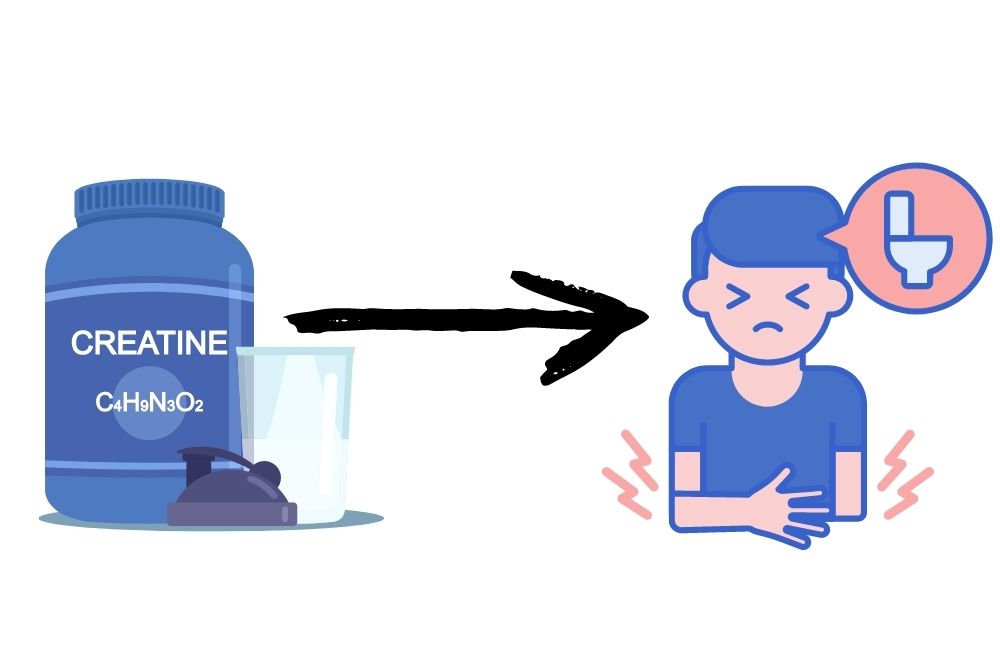
Having to spend time in the restroom several times a day can disrupt your plans for that day. If it happens to be a matchday, imagine the impact that would have.
This is why creatine should be taken in minimal doses, especially when close to a match day. Choosing the right dosage suitable for you depends on your weight class.
2. Weight gain
Creatine use can result in weight gain. This weight gain results from the added muscle mass and not body fat. Adding muscle mass can be an advantage. However, certain positions on the field of play require players to be lighter and quicker.
Positions such as the fullback and wingers are more suited for players who are light on their feet, fast, and quickly get around bulkier players. Creatine may not be the best option for players in these positions.
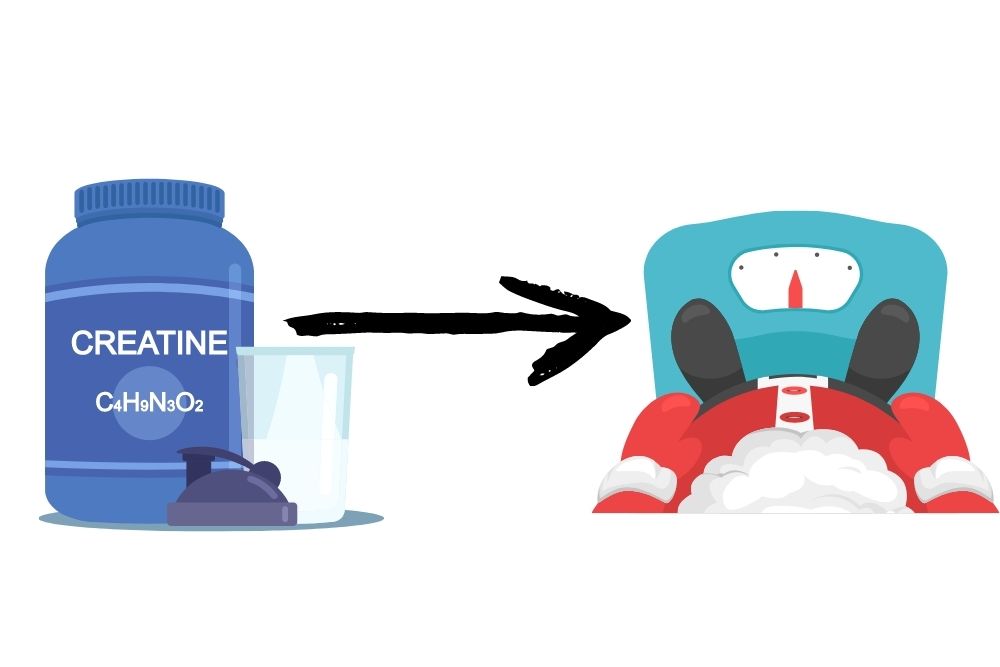
If taken, it should be done in harmless doses that focus more on energy production than muscle gain. Also, there is the issue of bloating due to water retention.
A sizable quantity of creatine in the bloodstream makes muscles retain water. Therefore, excess water weight slows down a player, decreasing overall performance.
When should a soccer player take creatine?
The best time to take a creatine supplement is before or after workout sessions, training sessions, and to a certain extent, before matches. Generally, you take them when you are sure your body will require a lot of energy production.
The primary aim is to keep going for the entire game duration. So all you need is a commensurate dosage with your weight class, and you are good to go.
It is essential to get your timing right, else the entire purpose of taking the supplement will be lost.
On the other hand, ensure you don’t overuse it as this may hurt your body system. Do your best to stick to the regular dosage your body has become accustomed to over time.
Using more than you should out of panic or a sudden desire to have an edge above your opponent may backfire.
How much creatine should a soccer player take?
To maintain steady muscle growth, it is advisable to take up to 3-5 grams daily before or immediately after workout sessions. However, keep in mind that the dosage to be used should be unique to your weight class and your goal muscle tone.
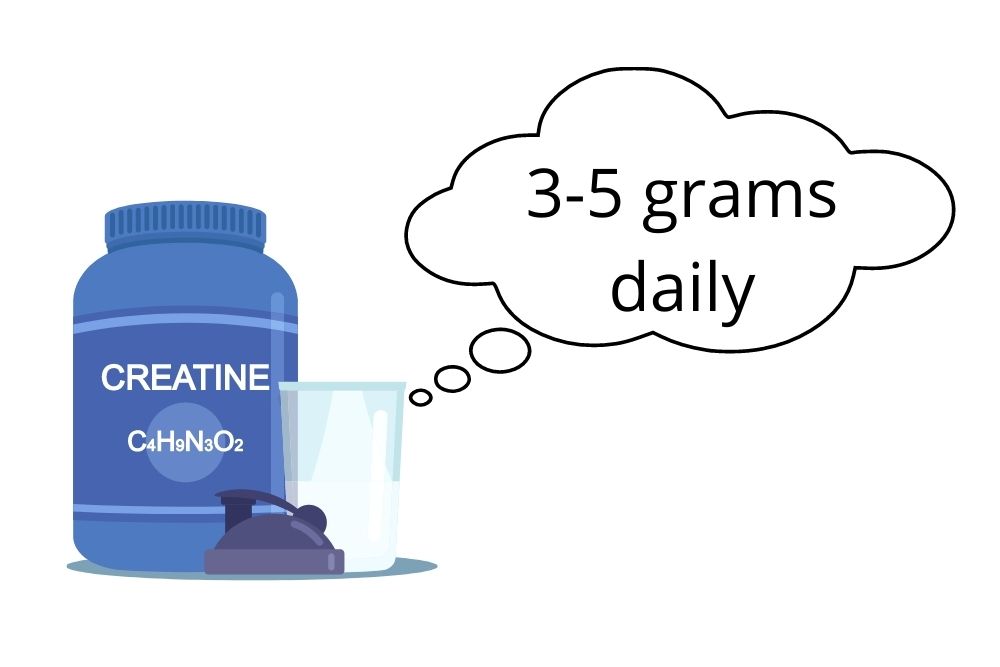
Also, the length of use is dependent on how large you intend to grow. When the desired weight class is attained, it is advisable to use it more sparingly to prevent bloating. The key to knowing which quantity is suitable for you also lies in your role.
Strikers are traditionally heavily built. Hence, if you play this role, you may want to take the supplement till you reach a peak physical condition. However, the game is changing, and in recent times, you will find more lightweight strikers.
Defenders like strikers are also heavily built, and you will hardly find a defender who is not considerably bulked up. Looking at the 80s and the 90s, the predominant physique of defenders and strikers was the tall, well-built type of physique.
So you may want to use it for an extended period if you occupy this position.
Fullbacks and wingers are usually the fastest on the field as they have to race back and forth several times during the game. If you play this role, you should use creatine to achieve a well-rounded tone that helps you achieve the goals of speed and strength without tilting too much to either side.
Midfielders can also use creatine, but the specific midfield role should be taken into account when administering.
For example, box-to-box midfielders do a lot of sprinting while attacking, and defensive midfielders usually don’t go beyond their territories. Hence usage could swing either way.
Is creatine bad for soccer?
Whether creatine is good or bad for soccer depends on which lenses you choose to use in viewing it. It has many benefits, closely followed by a few notable drawbacks.
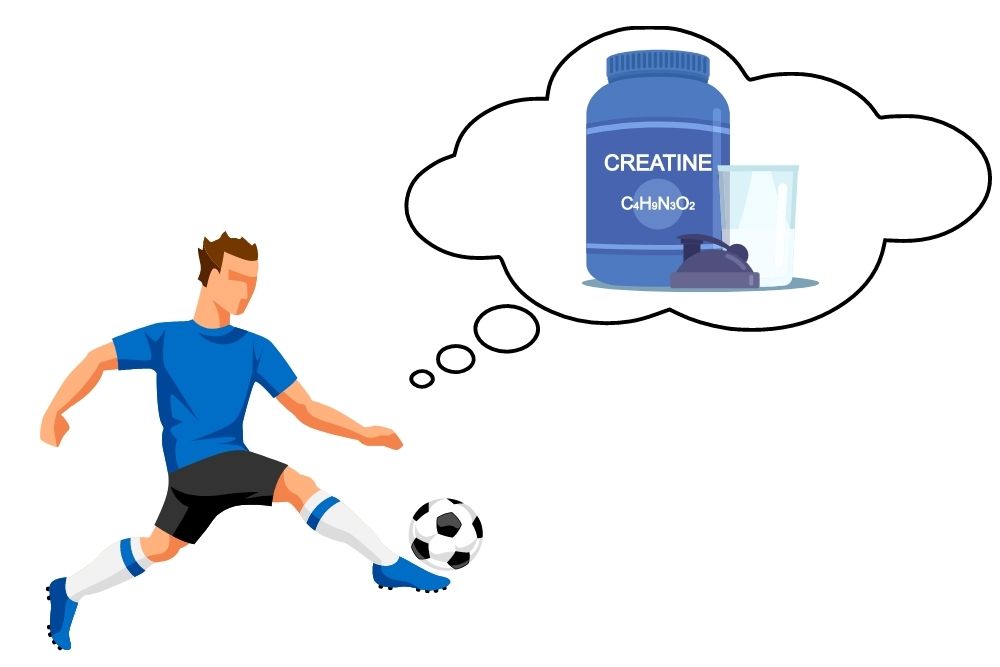
However, a fair examination should show that creatine is not bad for soccer and can be useful when used accurately.
Nevertheless, at no point does it create a shortcut to success as the body still has to do the majority of the main work.
Conclusion
Creatine is a great supplement capable of aiding a player’s journey towards greatness and perfection. With the correct dosage and timing, you will develop well and transform your all-around performance on the pitch to an elite athlete.
However, we advise that you should not get carried away by the progress you see and overindulge. Moderation is key.
Hi there, I’m Jay.
Soccer is everything in my life! My friends and I have created this blog with all our enthusiasm, passion, and understanding after years of playing pro soccer. Hope you will enjoy it!
